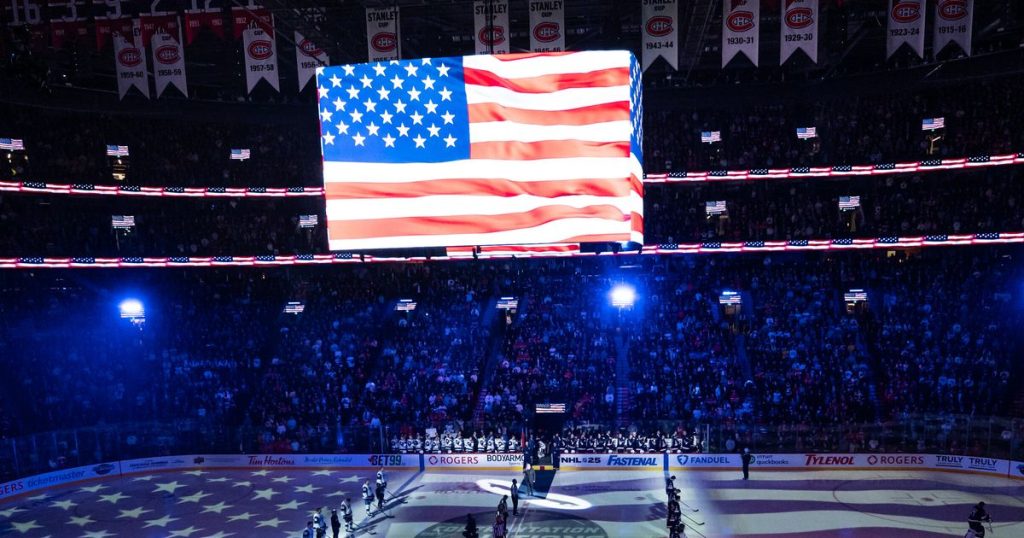The U.S. National Anthem Booed in Montreal: A Reflection of Cross-Border Tensions
In a recent hockey match between the U.S. and Finland held in Montreal, an unexpected wave of booing swept through the arena as the U.S. national anthem was played. The incident occurred during the 4 Nations Face-Off tournament, a event typically celebrated for fostering international sportsmanship. Despite a respectful announcement urging decorum, the crowd’s reaction signaled underlying tensions between the U.S. and Canada, adding a layer of complexity to an otherwise unifying sporting event.
The U.S. team, led by players like Matthew Tkachuk, showed resilience in the face of this hostile environment. Tkachuk, who scored two goals alongside his brother Brady, expressed his disappointment succinctly, emphasizing respect for both nations. Conversely, J.T. Miller found motivation in the jeers, suggesting that the energy fueled their performance. This duality in player reactions highlights the emotional impact of such incidents, with some taking it personally while others leveraged it for collective drive.
NHL officials, including Commissioner Gary Bettman, addressed the situation with a call for respect and unity. Bettman highlighted hockey’s role in bridging divides, noting that previous instances of booing had subsided after similar appeals. Deputy Commissioner Bill Daly acknowledged the broader political climate affecting relations, linking the fan behavior to recent trade tensions between the U.S. and Canada. Their statements underscored the league’s commitment to maintaining a respectful environment, acknowledging the challenge of balancing national pride with international camaraderie.
The broader context of U.S.-Canada relations offers insight into the crowd’s behavior. Historical cooperation and recent political strains, including tariff threats, have influenced public sentiment. This backdrop explains why the U.S. anthem, but not Finland’s, was targeted, reflecting a specific animosity rather than a general disregard for international customs. The incident serves as a microcosm of how political developments can permeate into cultural and sporting arenas.
Despite the adversity, the U.S. team demonstrated focus and determination, winning the match decisively. Coach Mike Sullivan emphasized their commitment to representing their country with pride, without letting external distractions influence their performance. The team’s resilience was exemplified by Auston Matthews, who faced individual booing, yet maintained his composure, embodying the spirit of sportsmanship even in unwelcoming environments.
In conclusion, the booing of the U.S. national anthem in Montreal highlights the intricate interplay between sports, politics, and nationalism. While the incident sparked debate, it also revealed the enduring unifying power of sports. The players’ and officials’ responses underscored the importance of mutual respect, reminding us that in the spirit of competition, adversaries can find common ground. As the tournament progresses, the focus remains on the game, a poignant reminder of sports’ ability to transcend borders and unite people across nations.
